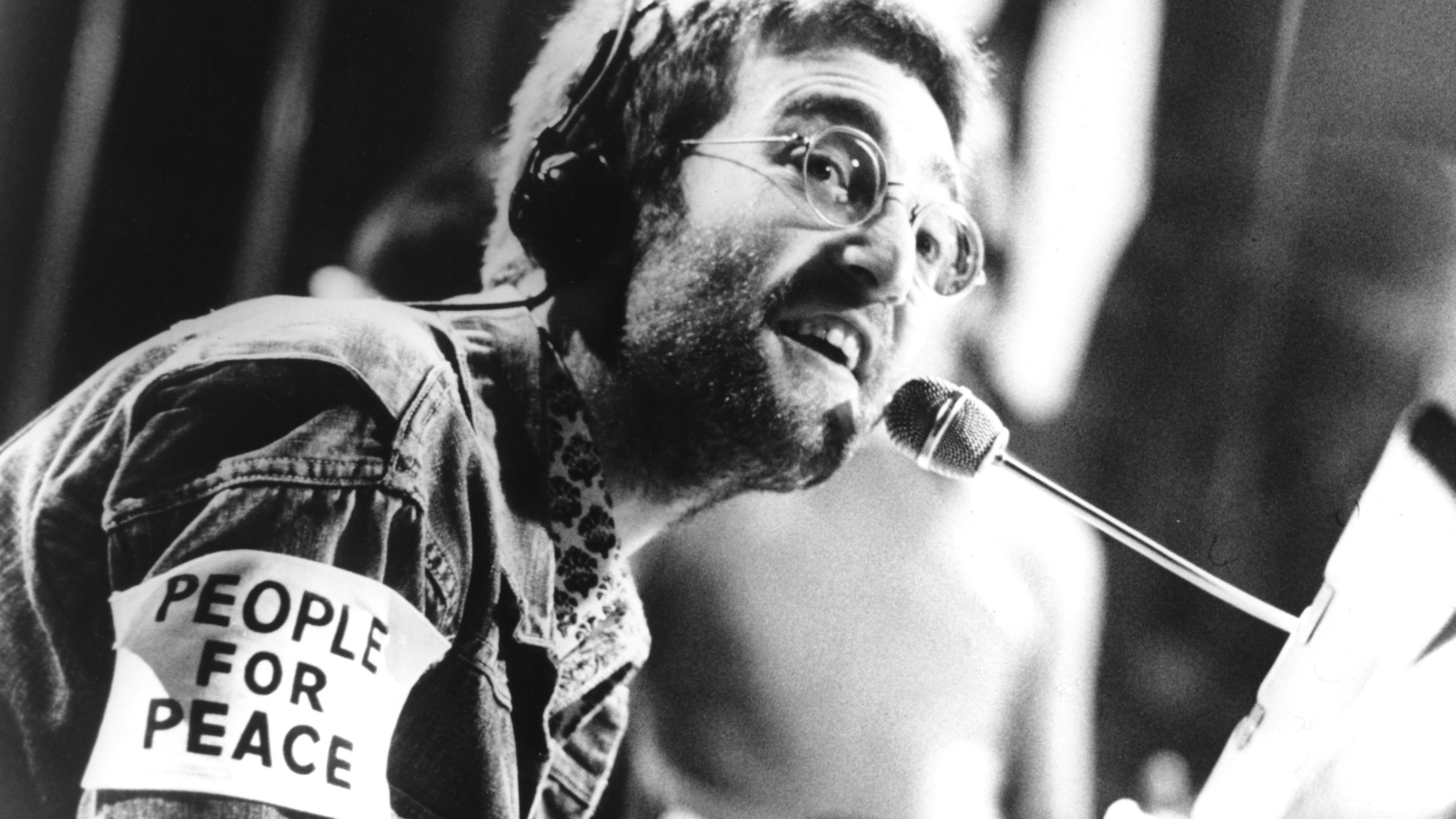"Hell, let’s do it": John Lennon wrote and recorded Instant Karma in one day. Here's how it happened
Remembering Lennon: "It was like all hell breaking loose. Tape machines, tape loops, tape delays, echo chambers, you name it!"

Want all the hottest music and gear news, reviews, deals, features and more, direct to your inbox? Sign up here.
You are now subscribed
Your newsletter sign-up was successful
Today, we're looking back at the work of an undeniable musical genius on the sad anniversary of John Lennon's death.
Instant Karma was released in February 1970, slap-bang in the middle of the Beatles' tortured implosion - Lennon had already demanded "a divorce" in September 1969, McCartney had proclaimed the "Beatles thing is over" in Life magazine in November, and the band 'officially' split in April 1970.
Its rapid inception and execution stand as a counterpoint to the erstwhile Fab Four's increasingly difficult collaboration, as documented in the temporarily redemptive but also undeniably challenging sessions documented in 2021's Get Back documentary and its progenitor, 1970's Let it Be movie.
It's not hard to see a contrast with the way an unfettered Lennon felt working under his own steam. As he recalled, in a fascinating oral history revealed alongside a mix of 10 takes of the track, “It was great because I wrote it in the morning on the piano; went to the office and sang it; I thought, ‘Hell, let’s do it,’ and we booked the studio.”
The Plastic Ono Band, Lennon's collaboration with Yoko Ono, had already released Give Peace a Chance, recorded during the couple's Montreal "bed-in" pro-peace demo in Summer 1969.
Back in early 1970, once Lennon knew he had a song in Instant Karma, he put in a call to George Harrison, who in turn enlisted an at-hand Phil Spector, famously not Paul McCartney's cup of tea, but generally a man with a studio plan.
“John phoned me up one morning in January and said, ‘I’ve written this tune and I’m going to record it tonight and have it pressed, up and out tomorrow. That’s the whole point – ‘Instant Karma!’ – you know?" said Harrison.
Want all the hottest music and gear news, reviews, deals, features and more, direct to your inbox? Sign up here.
John said, ‘Alan, whatever you’re doing, keep doing it. It’s wonderful.’
Alan White, drummer
“So I was in. I said, ‘OK. I’ll see you in town.’ I was in town with Phil Spector, said to Phil, ‘Why don’t you come to the session?’
"There were just four people: John played piano, I played acoustic guitar, Klaus Voormann on bass and Alan White on drums. We recorded the song and brought it out that week; mixed, instantly, by Phil Spector."
Andy Stephens was tape op on the day and, of Spector’s contribution said, “John kept trying to pull him to the fore. Spector stood back and didn’t volunteer or dictate much at all.”
As Lennon himself recalled the start of the session, “Phil came in and said, ‘How do you want it?’ I said, ‘You know, 1950’s but now.’ And he said, ‘Right!’ And boom! I did it in just about three goes. He played it back and there it was. I said, ‘A bit more bass’, that’s all. And off we went.”
Stephens: “Then Lennon really pulled him out: ‘C’mon, Phil!’ Once he got into his stride, it was like all hell breaking loose. Tape machines, tape loops, tape delays, echo chambers, you name it!"
Alan White, primarily Plastic Ono Band’s drummer but also a more than competent keys contributor, recalled Spector’s effect once fully engaged. “Phil wanted to have everything doubled up and made it sound like one.
"So it was John and myself on one piano and the other piano had Klaus playing, just layering all these different pianos and then he’d never put just one tambourine on a record; he had to have fifteen of them!”
Of his defining contribution, the track’s dry, pounding drum part, White said “I had an idea of what I wanted to do… It came naturally – and John said, ‘Alan, whatever you’re doing, keep doing it. It’s wonderful.’
The results quickly - yes, almost instantly - spoke for themselves, says Klaus Voorman, Plastic Ono Band bass go-to and once even rumoured to be McCartney's replacement in a semi-reformed Beatles line-up known as The Ladders. "We went into the control room, stood at the back and it started and it was so incredible. The sound was just like we had heard in the headphones but with all these incredible effects.
"Then I knew it, because I heard that sound and I thought, this is the Phil Spector sound. It’s very, very simple. He has got these effects on the pianos and these wavering sounds.
"The bass and the kick drum were completely clean. The voice was more or less clean. So that was typical for Phil Spector. And I love Phil Spector. I loved him then. From then on, it was incredible. Beautiful. I loved it."
Instant Karma hit UK record stores within 10 days, debuting on 6 Feb, and US shelves on 20 Feb, going on to be the first million-selling single by a solo Beatle.

I'm lucky enough to be MusicRadar's Editor-in-chief while being, by some considerable distance, the least proficient musician on the editorial team. An undeniably ropey but occasionally enthusiastic drummer, I've worked on the world's greatest music making website in one capacity or another since its launch in 2007. I hope you enjoy the site - we do.